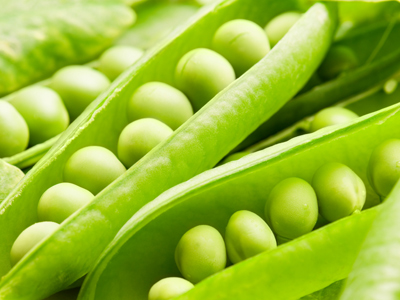Carbohydrates
All carbohydrates are composed of three elements:
- carbon
- oxygen
- hydrogen
Carbohydrates are your body’s main source of energy for action. The more active you are, the more carbohydrate-rich foods your body needs. Part of the carbohydrate, broken down to glucose, is stored in your liver and muscles. If you consume too much carbohydrates, the glucose is stored as fat.
Fiber (Fiber is a good sources of carbohydrates.)
Good sources of soluble fiber include: oat bran, barley bran, dried beans and peas.
Good sources of insoluble fiber include: wheat bran, corn bran, nuts and fruits and vegetable skins.
Proteins
Proteins are made of long chains of building blocks called amino acids. There are plant proteins and animal proteins. Animal food source comes from: meat, fish, poultry, eggs, milk and milk products, all of which contain every essential amino acid. Plant proteins do not contain all of the essential amino acids and, therefore, are called incomplete proteins. In order to complete the plant protein, some foods can be added such as macaroni and cheese, a peanut butter sandwich on whole-wheat bread or eating a tortilla with refried beans.
Fats and Oils
Fats are made up of fatty acids (chains of carbon, hydrogen and oxygen) attached to a glycerol molecule. Typical fat molecules consist of three fatty acids known as triglycerides. Triglycerides are important to your heart’s health. They are stored in the fat cells and released when the body needs a burst of energy. Both fats and fatty acids are types of lipids. Lipids are used by the body to store energy, build cell parts, and to distribute fat-soluble vitamins to all parts of the body.
Animal fats consist mostly of saturated fatty acids. Fats that are liquid at room temperature are called oils and are unsaturated fats.
Cholesterol
Cholesterol is another type of lipid and is used by your body to produce bile, vitamin D and certain hormones. It is a fatlike substance that accumulates in blood vessels and restricts the flow of blood. Your liver manufactures cholesterol every day. Consuming too much cholesterol may contribute to elevated blood cholesterols leading to atherosclerosis which is a buildup of plaque inside the blood vessels. The plaque buildup is a major risk factor for high blood pressure and other cardiovascular (heart) diseases.
To keep your blood cholesterol level low:
- Maintain your recommended body weight
- Increase daily intake of soluble fiber
- Reduce fat intake
- Exercise regularly
- Do not smoke
Other substances that the body needs and uses include:
- Monosaccharides – These are simple sugars.
- Disaccharides – These are two monosaccharides combined.
- Polysaccharides – These are complex carbohydrates such as bread, cereals, pasta, potatoes and rice.
Now that you have learned a little about macronutrients and how they work in the body, it’s time to take the quiz. Read each of the ten questions listed below carefully and then answer them to the best of your ability. See if you can get them all correct!








